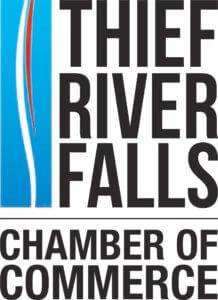Opening an auto repair shop is a bold move — one that blends technical know-how with business savvy. Whether you're transitioning from being a technician to a business owner or exploring the space as a new entrepreneur, this guide breaks down what you’ll need to succeed — from certifications to customer acquisition.
Let’s walk through the foundational requirements and operational best practices for launching your own shop.
Step-by-Step Essentials to Launch
Here’s a high-level checklist of what to prepare before you open the bay doors:
-
Business License & Permits – Depending on your state, you'll need a general business license, a sales tax permit, and possibly an environmental permit for handling hazardous waste.
-
Location & Zoning Approval – Find a space with adequate square footage, parking, and compliance with local zoning laws. Consider visibility and traffic patterns.
-
Certifications – ASE certification isn’t mandatory, but it boosts credibility and may lower liability premiums.
-
Insurance – Protect your shop with general liability, garage liability, workers’ compensation (if hiring), and property insurance.
-
Tools & Equipment – Invest in diagnostic tools, lifts, compressors, and safety gear. Many shop owners begin by leasing major equipment to manage costs.
-
Pricing & Service Models – Decide between hourly rates or flat-rate pricing. Structure service tiers (e.g., oil change packages, inspections, specialty repairs).
-
Hiring & Training – If you’re scaling beyond a one-person shop, develop hiring plans and safety protocols.
-
Marketing Plan – Build early visibility via business listings, customer reviews, and local partnerships (like towing companies or used car dealers).
-
Vendor Agreements – Secure trusted parts suppliers with predictable delivery schedules and solid return policies.
Speeding Up Setup with Smarter Paperwork
Getting your shop legally operational involves documentation — lots of it. Securing licenses, permits, and vendor partnerships can be slow if you're tied to scanning or faxing. That’s why many repair shop founders opt to insert an online signature solution to handle everything from state permit applications to parts supplier agreements.
A cloud-based signature tool lets you send, sign, and track contracts or forms securely — from any device. It supports both electronic and digital signatures, which keeps your paperwork legally compliant and streamlines vendor and government interactions.
Business Setup: Financials, Structure & Compliance
Here’s a quick comparison of critical setup decisions:
|
Category |
What You Need |
Best Practices |
|
Business Structure |
Sole Proprietor, LLC, or Corporation |
LLCs are popular for liability protection and tax flexibility. |
|
Banking |
Business checking, merchant services, payment processors |
Keep finances separate from personal accounts. |
|
Accounting |
Software or accountant for invoicing and taxes |
Choose tools that integrate with your POS or CRM. |
|
Payroll & HR |
For any W-2 employees or apprentices |
Use cloud-based payroll tools for tax compliance. |
|
Compliance |
OSHA standards, EPA waste handling protocols |
Post signage and document all processes. |
If you're looking for help forming your legal structure, there are several services that assist with LLC registration and EIN filing (e.g., LegalZoom, Tailor Brands, Rocket Lawyer).
Pro Tip: Start with Specialty, Then Scale
Many successful repair shops begin by focusing on a niche. Examples include:
-
Transmission-only service
-
Euro car specialists
-
Hybrid vehicle diagnostics
-
Fleet service contracts
Niches let you build local reputation, optimize your tools and training, and attract a specific customer base with higher trust and pricing power. Once established, you can scale to general maintenance or hire additional specialists.
How Do You Market a New Auto Shop?
Visibility starts locally. Here’s what to prioritize:
-
Set up a Google Business Profile – This ensures your shop appears in local map searches.
-
Get listed in automotive directories – Including platforms like RepairPal and Mechanic Advisor.
-
Claim your chamber of commerce listing – Often a free trust signal that also helps with local SEO.
-
Build early reviews – Offer free safety checks or discounts in exchange for initial reviews on Google and Yelp.
-
Use location-tagged content – A few how-to videos or blog posts with your city name help with discoverability.
Short Feature: A Tool Worth Highlighting
Shopmonkey is a repair shop management platform that helps with everything from estimates to customer texting and workflow tracking. It’s built for ease of use, especially for first-time owners. It's not the only option — alternatives include AutoLeap and Tekmetric — but it's one of the simplest to onboard quickly.
FAQ: Auto Repair Shop Launch
How much does it cost to open an auto repair shop?
Startup costs range from $50K–$250K, depending on location, equipment, and whether you lease or buy your property.
Do I need a license to be a mechanic?
Not in most states, but ASE certification or state-specific emissions licenses may be required.
Can I start small out of a garage?
Yes — but zoning, insurance, and EPA waste handling rules may limit what you can do legally. Always check with your local municipality.
What's the best way to attract new customers?
Word-of-mouth, Google reviews, and business directory placements are foundational. Local partnerships with towing services or used car dealers can accelerate growth.
Do I need to offer warranties?
It helps with trust. Many independent shops offer 12-month or 12,000-mile parts/labor warranties. Some third-party suppliers even provide extended part warranties if installed by a certified shop.
Conclusion
Starting your own auto repair shop is about more than wrenches and lifts. It’s a structured business transition that rewards preparation, positioning, and process. Whether you're opening a three-bay shop or starting solo from your garage, the right tools — from cloud-based signatures to service management platforms — make the journey faster and smoother.
Discover the benefits of joining the Thief River Falls Chamber of Commerce and connect with local business professionals to help grow your business and community today!

